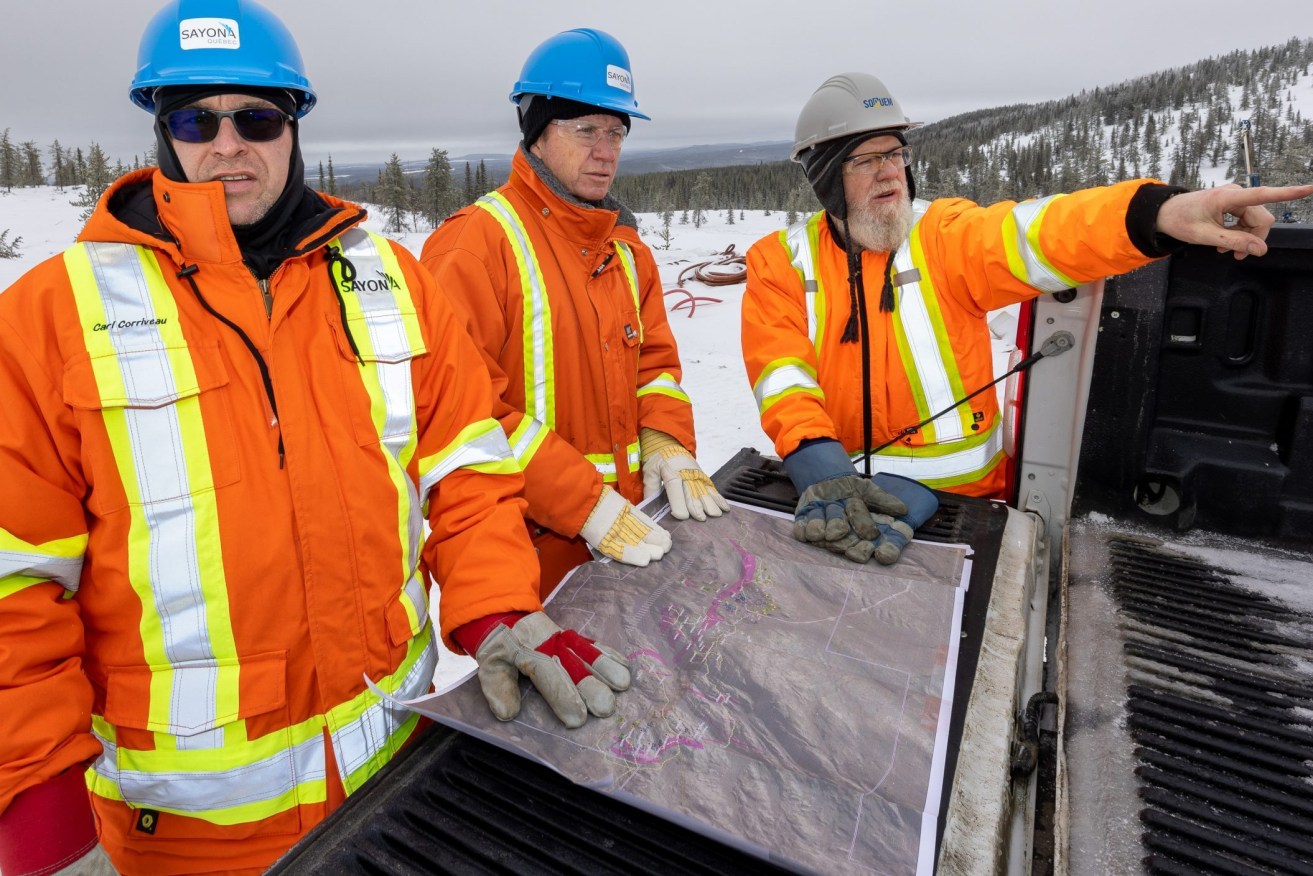Sayona’s Canadian lithium venture shows a $5 billion promise
Brisbane-based Sayona has revealed that its North American Lithium project in Quebec, Canada, had a net present value of more than $5 billion.


Brett Lynch (centre) at a Canadian drill site (Photo: Sayona)
Sayona said the total EBITDA over the project’s 16-year life was $7.5 billion, based on the production of 372,000 tonnes of lithium carbonate.
The NAL project is 75 per cent owned by Sayona with Piedmont holding the remaining 25 per cent.
“Based on the positive study, Sayona now plans to commission a definitive technical study for the production of battery-grade lithium carbonate from spodumene concentrate,” Sayona said.
“Subject to the study’s timing and outcomes, the carbonate plant could be commissioned as early as 2026.”
Managing director Brett Lynch said the study showed the outstanding value it the company had generated from its strategy of buying brownfield plant with existing assets.
“With an accelerated pathway to lithium carbonate production, we are rapidly advancing our goal of becoming a fully integrated producer of lithium chemicals,” he said.
“Significantly, NAL is set to become the only lithium operation with a concentrator and a carbonate plant all on the same site in north America.”
He said demand continued to increase for lithium and the Canadian and US governments had shown their support for the development of a north American supply chain.
“Quebec has shown a clear vision of becoming a leader in this new industry, maximising benefits of its sustainable hydropower, world-class infrastructure and proximity to key battery markets.
“A new lithium carbonate plant will make a significant contribution in creating a green and sustainable supply chain, delivering new jobs and investment for local communities, together with a low carbon footprint.”
NAL’s existing carbonate plant had approvals and permits to produce about 20,000 tonnes a year.
A production increase would need regulatory approval.
Sayona said to achieve the development schedule, major equipment packages would be needed to be awarded early to secure delivery and allow commissioning by 2026.












